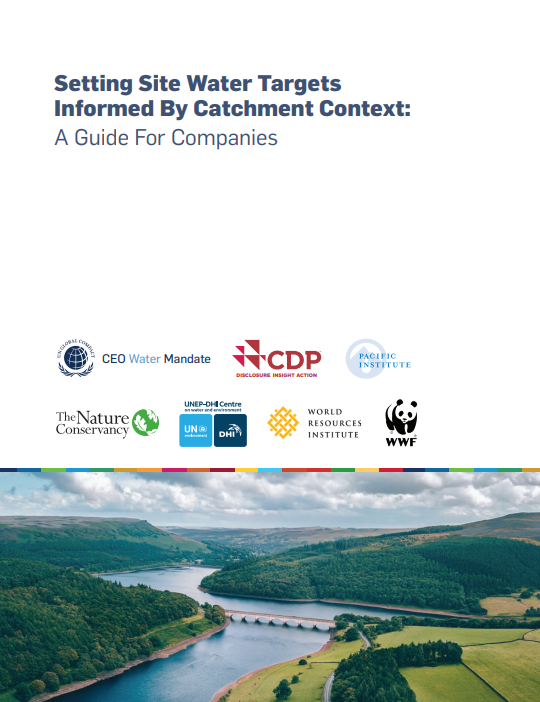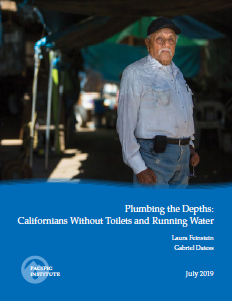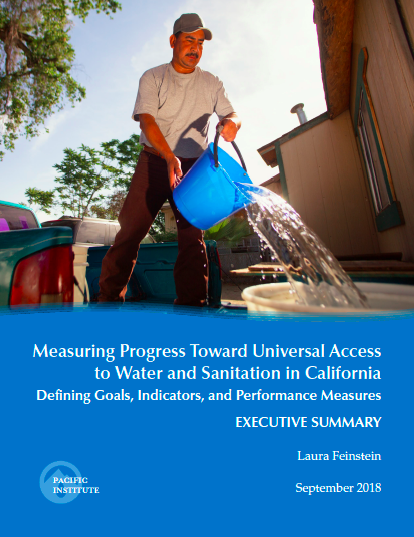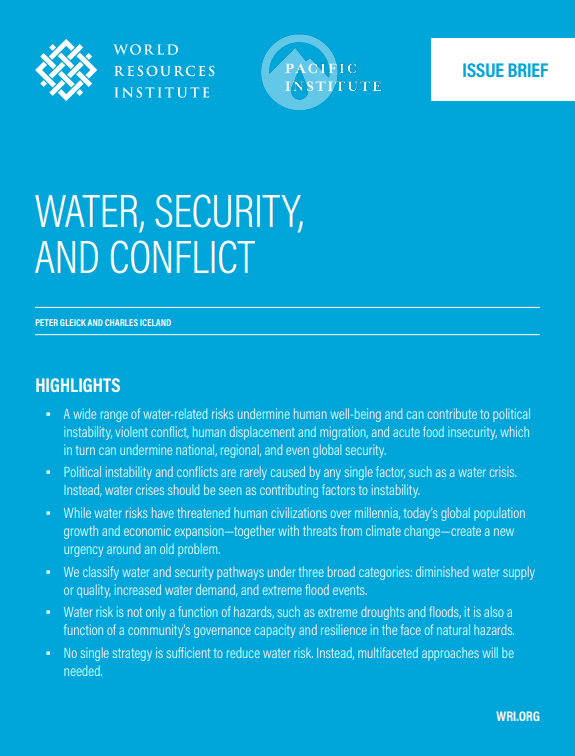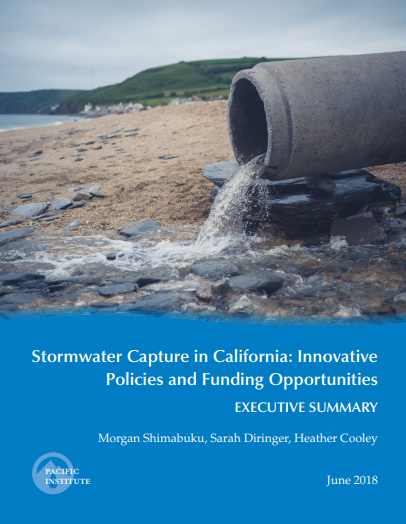1075 Resources
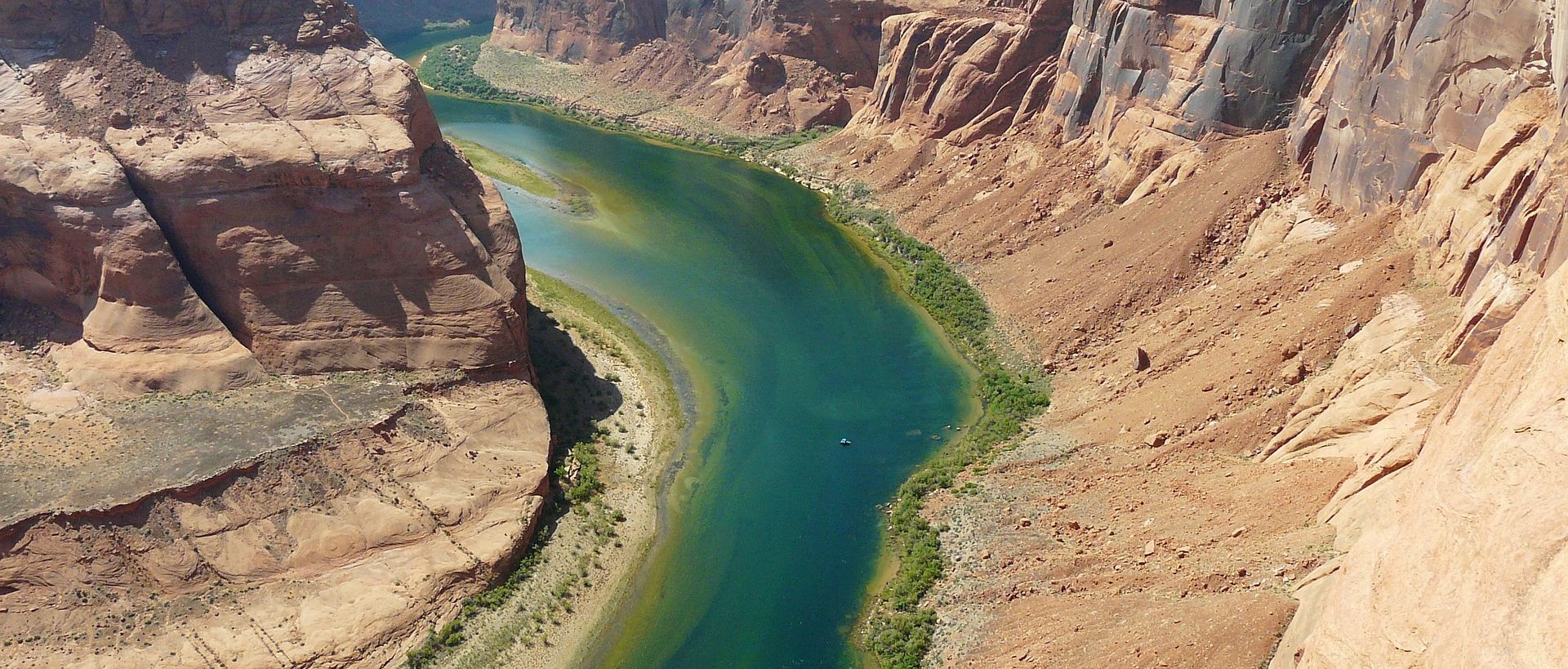
Corporate Water Stewardship in the Colorado River Basin
April 6, 2020 | post
The Colorado River Basin is the lifeblood of the West, providing water to more than 40 million people in seven U.S. states and two states in Mexico. Irrigation using Colorado River water generates an estimated $8 billion annually in agricultural products like winter vegetables, cotton, and cattle and dairy. In addition, recreation along the river and its tributary streams (boating, swimming, hiking, camping, etc.) contributes $17 billion per year to local economies.
New Research Finds Incorporating Co-Benefits and Scaling Make Urban Stormwater Capture More Economically Feasible
March 31, 2020 | announcement
March 31, 2020, Oakland, California -- Stormwater is an increasingly important and undervalued water supply option in California. As climate change increases the risk of both droughts and floods, stormwater capture offers a significant opportunity to invest in water sustainability and community resilience.
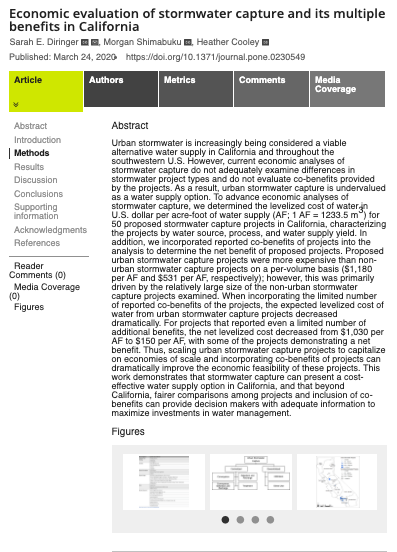
Economic Evaluation of Stormwater Capture and Its Multiple Benefits in California
March 31, 2020 | publication
Urban stormwater is becoming an increasingly important alternative water supply in California. However, current economic analyses do not adequately evaluate co-benefits provided by different stormwater investments. As a result, urban stormwater capture is undervalued.
March 2020 Newsletter
March 30, 2020 | announcement
The monthly newsletter features the Pacific Institute’s research, publications, news about past and upcoming Institute staff outreach efforts, and media coverage of its work and analysis.
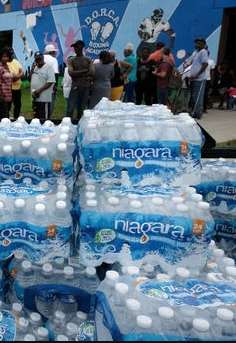
Op-Ed: Hand-Washing Is Critical in the Fight Against Coronavirus, but What If You Don’t Have Safe Water?
March 25, 2020 | publication
The coronavirus pandemic is shining a spotlight on the weaknesses of social, economic and health safety nets we’ve long taken for granted, including our water system.
Pacific Institute and Partners Developing Database on Public Water Management in U.S. and Mexico with Webinar Series
March 25, 2020 | announcement
The Pacific Institute, World Resources Institute, and the UN Global Compact CEO Water Mandate are working with businesses to develop a database on public water management in the U.S. and Mexico.
Water Resilience Coalition Launched
March 23, 2020 | announcement
March 23, 2020, Oakland, California — The Pacific Institute today announced that as Co-Secretariat of the United Nations Global Compact’s CEO Water Mandate, it has partnered with a number of leading global companies to launch an industry-driven, CEO-led initiative, the Water Resilience Coalition. The Coalition aims to preserve the world’s freshwater resources through collective action in water-stressed basins and ambitious, quantifiable commitments.
COVID-19 Shines Spotlight on Water and Sanitation Challenges
March 21, 2020 | announcement
March 21, 2020, Oakland, California -- Tomorrow is World Water Day, a day to celebrate the importance of water to people and the planet. This year’s focus on water and climate change has been expanded to include handwashing, recognizing that the changing climate impacts water and exacerbates water scarcity in places where people already lack access to safe water.
New Paper Calls for Urgent Business Action to Mitigate and Manage Water-Related Risks of Climate Change
March 20, 2020 | announcement
March 20, 2020, Oakland, California -- A paper released today by the Pacific Institute and partners presents the case for more urgent action from the business community to mitigate and manage the water-related risks of climate change, including precipitation shifts and extreme drought, which are intensifying around the world. By demystifying common barriers to action and presenting examples from businesses making effective changes on the ground, Corporate Water Resilience in an Uncertain Future shows how businesses can effectively adapt to physical risks of a shifting climate, while helping to mitigate further effects of climate change.
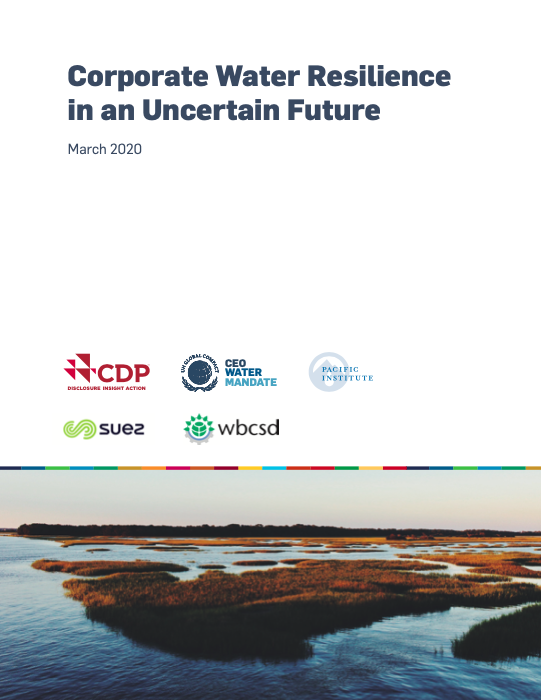
Corporate Water Resilience in an Uncertain Future
March 20, 2020 | publication
Around the world, businesses are experiencing adverse physical effects of climate change, from increased operational costs and disrupted production to social unrest in communities in which they operate. These impacts are most prominently expressed through changes in the water cycle, including precipitation shifts and extreme drought.
February 2020 Newsletter
February 29, 2020 | announcement
The monthly newsletter features the Pacific Institute’s research, publications, news about past and upcoming Institute staff outreach efforts, and media coverage of its work and analysis.

Water Diplomat Talks
February 26, 2020 | video
Dr Peter Gleick of The Pacific Institute speaks with David Duncan, Publisher, OOSKAnews in this (LINK) audio interview for “The Water Diplomat”.

Pacific Institute Provides Comments on California Water Resilience Portfolio
February 19, 2020 | post
In January 2020, California state agencies released a draft document meant to signify a new chapter in California water: the Water Resilience Portfolio. The Portfolio was developed in response to Governor Newsom’s Executive Order (N-10-19), which called for a comprehensive strategy to build a climate-resilient water system for the 21st century.

Comment Letter on the Draft Water Resilience Portfolio for the State of California Regarding a Multi-Benefit Approach
February 13, 2020 | publication
This comment letter focuses on how the California Water Resilience Portfolio can incorporate multiple benefits when prioritizing and funding water management strategies throughout the state.

Comment Letter on the Draft Water Resilience Portfolio for the State of California
February 13, 2020 | publication
This comment letter conveys summary comments and suggestions on the draft Water Resilience Portfolio released by California state agencies, drawing on the considerable experience Pacific Institute has around themes of water efficiency, stormwater management, and the Salton Sea.
Dr. Sarah Diringer of the Pacific Institute to Present in WaterNow Webcast
February 13, 2020 | announcement
On February 25th, Pacific Institute Senior Researcher Dr. Sarah Diringer will present in the next installment of WaterNow’s Tap into Resilience webcast series, "Tapping into the Multiple Benefits of Sustainable Water Management."
Jason Morrison and Heather Cooley of the Pacific Institute to Participate in Business Adaptation Sessions
February 5, 2020 | announcement
Pacific Institute President Jason Morrison and Director of Research Heather Cooley will participate in the Business Adaptation Sessions at the Microsoft facilities in Redmond, Washington on February 10th and 11th, 2020.
Laura Feinstein of the Pacific Institute to Speak at Alternative Irrigation Water Workshop
February 1, 2020 | announcement
On February 7th, 2020, Pacific Institute Senior Researcher Laura Feinstein will speak at the Alternative Irrigation Water Workshop hosted by California State University, Bakersfield.

Op-Ed: Water Scarcity Will Increase Risk of Conflict, Says New National Intelligence Report
February 1, 2020 | publication
On December 20, 2019, President Trump signed into law the National Defense Authorization Act (Public Law 116-92), including the Intelligence Authorization Act of FY2020. Section 6722 of that law required a report be prepared on the national security effects of “global water insecurity” and be submitted within 180 days (by late June 2020) to “the congressional intelligence committees, the Committee on Foreign Affairs of the House of Representatives, and the Committee on Foreign Relations of the Senate.”
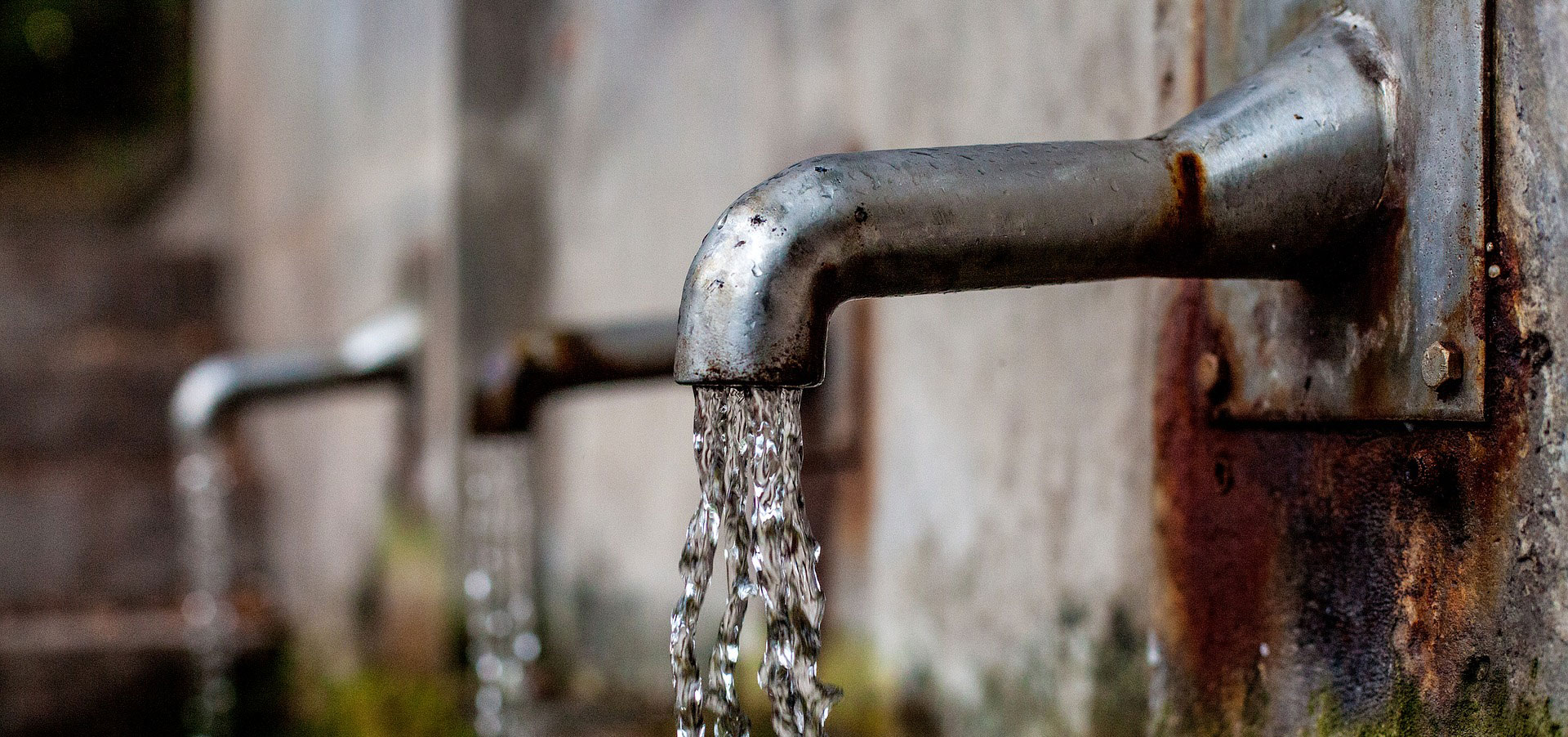
Taps, Toilets, and Good Hygiene: Critical Ingredients for Resilient Agriculture
January 30, 2020 | post
2019 was a critical year for climate and water. Major events – from hurricanes to droughts and brushfires – highlight that climate’s impacts are being felt now and that the world needs to take action to build resilience while also accelerating action to reduce greenhouse gas emissions.
January 2020 Newsletter
January 30, 2020 | announcement
The monthly newsletter features the Pacific Institute’s research, publications, news about past and upcoming Institute staff outreach efforts, and media coverage of its work and analysis.
Cora Kammeyer of the Pacific Institute to Present on Sustainable Landscapes for Business Properties
January 27, 2020 | announcement
On February 7th, 2020, Pacific Institute Research Associate Cora Kammeyer will present on sustainable landscapes for business properties in California to the Metropolitan Water District of Orange County and their member agencies in Fountain Valley, California.
Pacific Institute President Jason Morrison to Attend 32nd UN-Water Meeting in Rome
January 25, 2020 | announcement
Pacific Institute President Jason Morrison will attend the 32nd UN-Water Meeting from January 28th to 29th in Rome, Italy.

Comment Letter on the Proposed Urban Water Conservation Reporting Regulations for the State of California
January 13, 2020 | publication
This comment letter expresses comments and suggestions in response to proposed regulation under the California Code of Regulations around reporting urban water conservation information for water utilities.

Op-Ed: California Can Solve Its Water Shortage With the Water We Have. Here’s How.
December 30, 2019 | publication
We can continue our costly, 100-year-old pattern of trying to find new water supplies, or we can choose instead to focus on smarter ways of using – and reusing – what we already have.
Page 17 of 43



